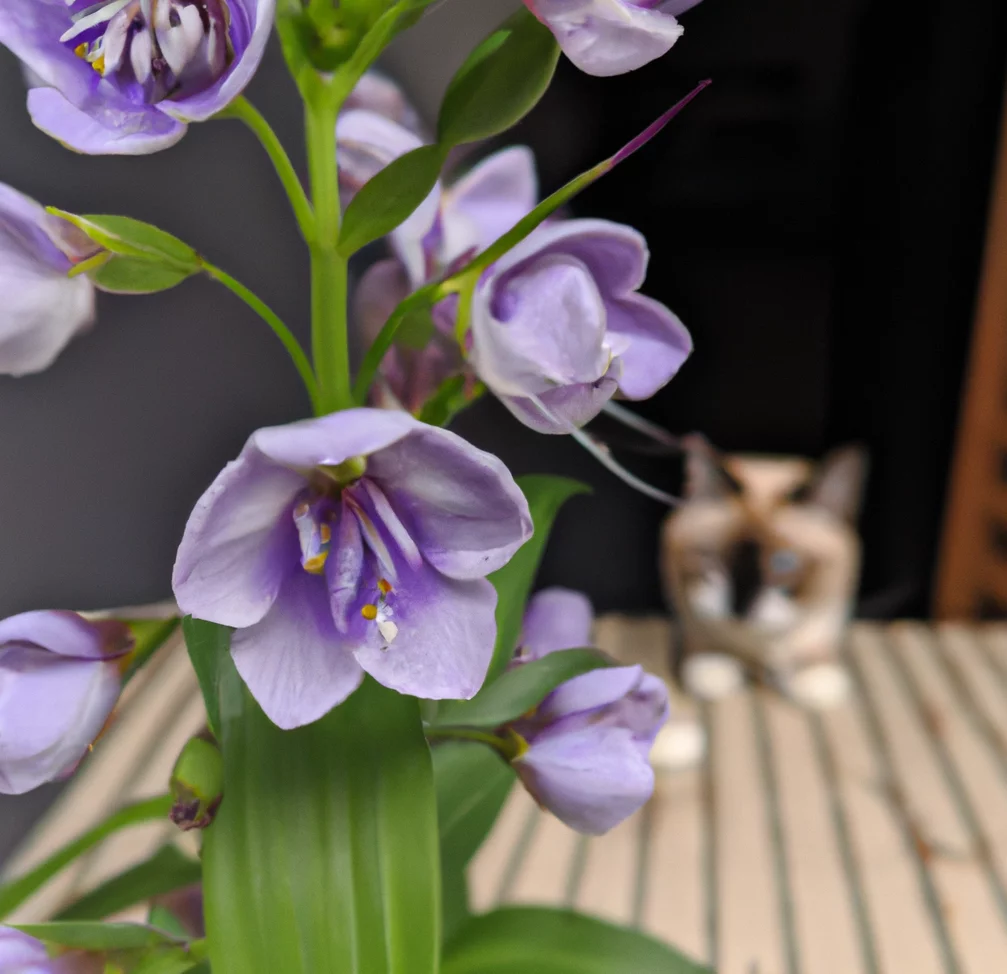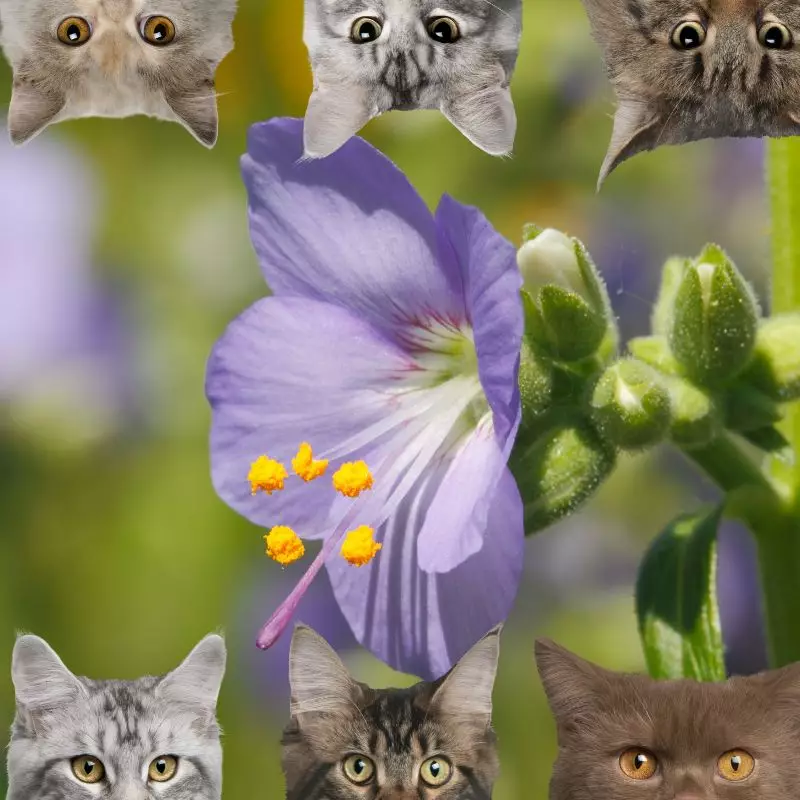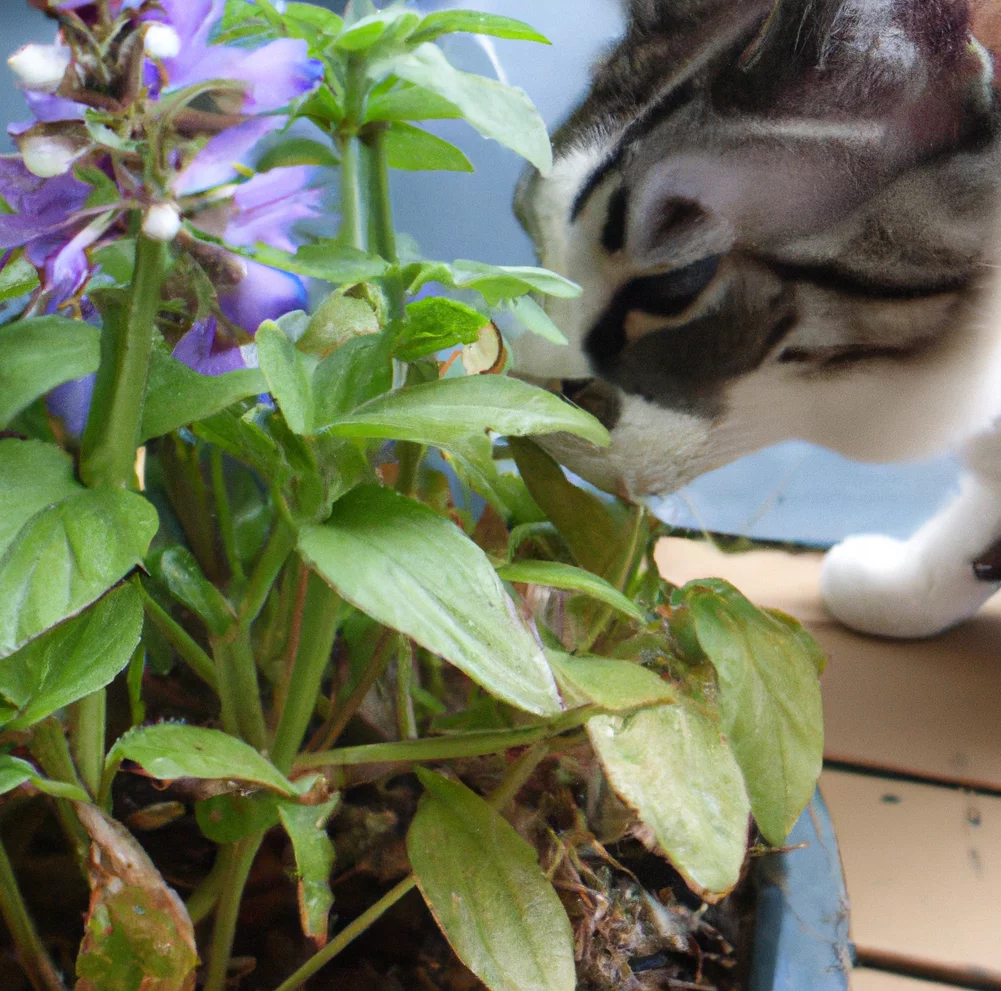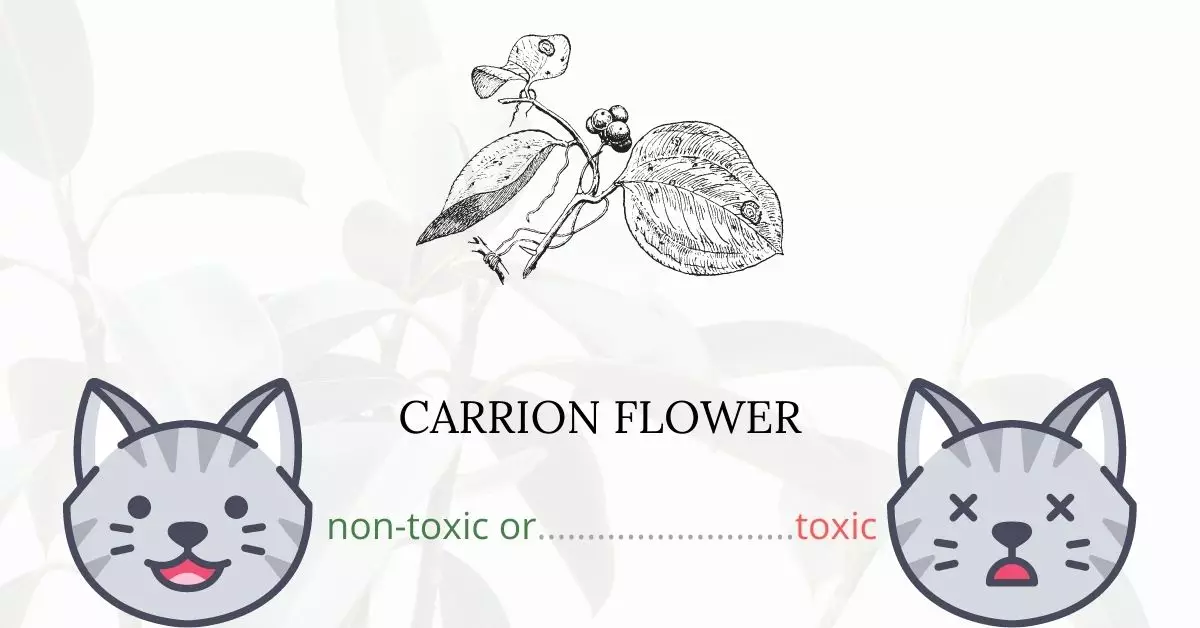To directly address the concerns, neither Carrion Flower nor Jacob’s Ladder is considered toxic to cats, according to the ASPCA (American Society for the Prevention of Cruelty to Animals) Poison Control Center. If you observe your feline friend showing an interest in these plants, there is no immediate cause for alarm.
This article is the result of a collaborative effort between our writing team and a group of seasoned Doctors of Veterinary Medicine (DVMs), who have generously contributed their knowledge and expertise to offer precise and contemporary information on the potential risks various plants may pose to cats, focusing specifically on Carrion Flower in this context. Through their invaluable insights, we strive to enhance awareness and promote a safer environment for your pets.
In addition to leveraging the experience of veterinary professionals, our research extends to high-authority, reputable sources such as ASPCA and PetMD, to ensure the accuracy and reliability of the information provided on each plant under consideration. By doing so, we aim to deliver a comprehensive understanding of how plants like Carrion Flower and Jacob’s Ladder interact with cats, equipping cat owners with the necessary knowledge to make informed decisions regarding their pets’ safety and well-being.
Can Cats Eat Carrion Flower or Jacob’s Ladder?

Although the ASPCA lists the carrion flower as a non-toxic plant, this does not mean that you should let your cat consume too much of it. Because plants are difficult for cats to digest, it is very likely that they will vomit and have diarrhea if they eat too much of them.
Chemicals used in a plant, such as fertilizers and insecticides, are another reason that might make cats sick. Poisoning can occur if a cat eats a piece of carrion flower or any other plant with chemical residue.
What is Carrion flower or Jacob’s Ladder?

Smilax herbacea is the scientific name for carrion flower, which is also known as the common carrion vine, Jacob’s ladder, and smooth Carrion Flower. The Smilaceae family comprises this plant. It’s a stench-producing native American woods vine. The scent of Carrion Flower is pleasant, yet it has been compared to “rotten meat” or “dead rats.”
Wet forests, thickets, and forested banks are the preferred habitats of this plant. The Carrion Flower is thornless and lacks hairs on the underside of the leaf, unlike other Smilax species. It also has a long stem that supports the vine’s berry cluster. This non-woody climbing vine is a herbaceous perennial that grows up to 8 feet long and branches occasionally. The terete, slightly speckled, glabrous, and typically glaucous stems range in color from pale green to purple. At intervals throughout each stem, alternate leaves up to 312″ long and 212″ across appear; they are ovate-oval to broadly ovate-lanceolate in form, smooth along their margins, and parallel-veined.
Keeping Cats Away From Carrion Flower

Even if they are non-toxic, keep carrion flowers and other plants away from your cats. You can keep your plants safe while simultaneously keeping your cat safe from dangerous particles. Cats can easily be kept out of plants by creating a physical barrier. Covering the soil with stones is frequently enough to deter cats from digging. Scratching and chewing cats may require a stronger barrier.
Plants to Avoid For Your Cats
If you are a cat owner and unsure if the plants growing in your yard are harmful to your cats, check out this list of toxic plants for cats. You can also check our list of non-toxic plants for cats.





